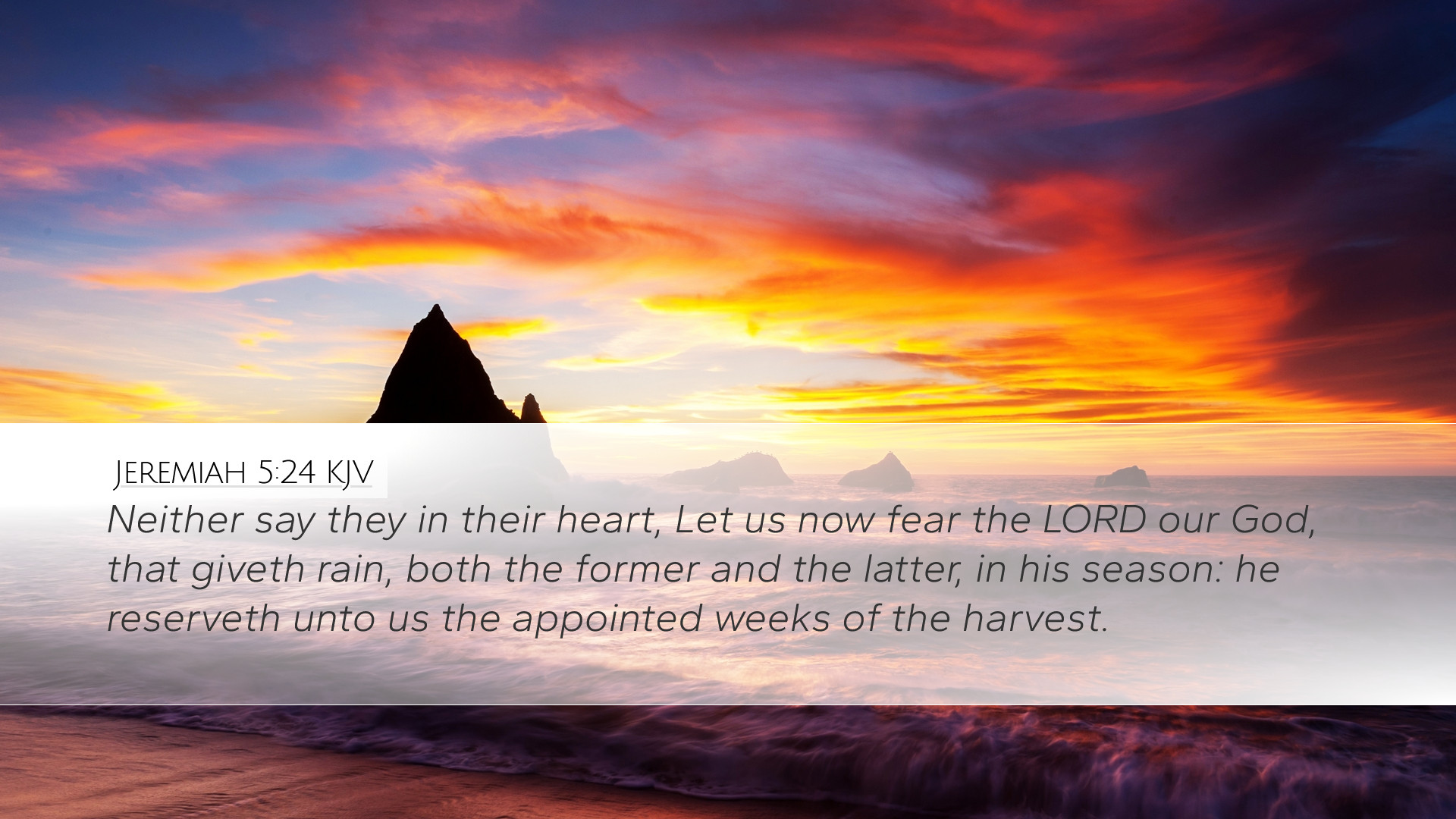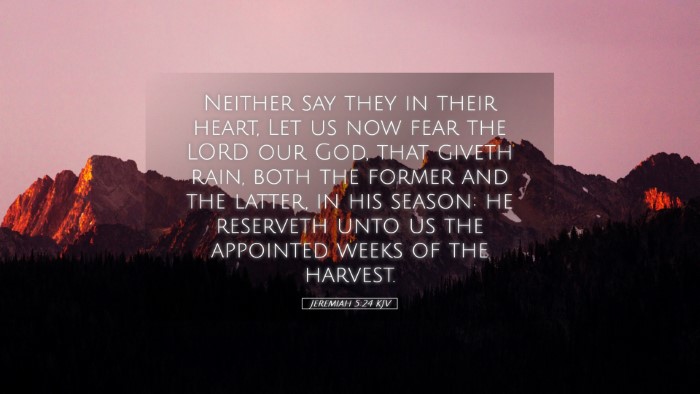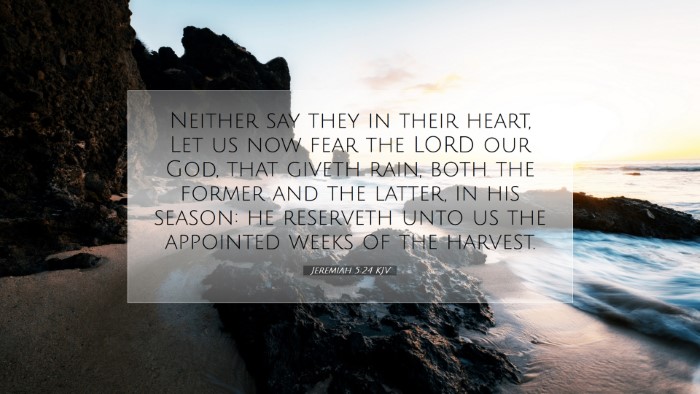Commentary on Jeremiah 5:24
Verse Text: "Neither say they in their heart, Let us now fear the Lord our God, that giveth rain, both the former and the latter, in his season: he reserveth unto us the appointed weeks of the harvest." (Jeremiah 5:24, KJV)
Introduction
This verse from Jeremiah highlights the spiritual apathy of the people of Judah amidst God's ongoing benevolence. It draws attention to their failure to recognize and express gratitude for God's providential care, particularly in relation to the vital agricultural seasons. It serves as an admonition for all generations regarding the importance of reverence for God and acknowledgment of His sustaining grace.
Textual Analysis
The verse can be dissected into significant components that reveal profound theological truths about God’s sovereignty and human responsibility.
- “Neither say they in their heart”: This opening phrase indicates a deliberate choice among the people to disregard the inner voice that prompts fear and reverence towards God.
- “Let us now fear the Lord our God”: The phrase emphasizes the essential nature of fearing God—an attitude of reverence and awe, which is foundational for a righteous life.
- “That giveth rain, both the former and the latter”: Here, the imagery of rain symbolizes God's provision. The "former rain" relates to the early rains that prepare the soil, while the "latter rain" is critical for a fruitful harvest.
- “In his season”: This part addresses God’s perfect timing, affirming His control over creation and the agricultural cycle.
- “He reserveth unto us the appointed weeks of the harvest”: This showcases God's sovereignty in seasons and harvests. It points towards His providence and reminds the people of their dependence on Him.
Theological Insights
The commentary from public domain sources elucidates profound theological themes embedded in this verse:
- The Nature of God’s Provision: Both Henry and Clarke emphasize that God’s role as a provider encompasses not only physical sustenance but also spiritual nourishment. God gives and withholds rain according to His wisdom, and in doing so, teaches humanity reliance on Him.
- Human Responsibility and Apathy: The shocking juxtaposition of God's abundant care and Israel’s indifference highlights human negligence. Barnes comments on the tendency of people to forget their dependence on God when they enjoy material blessings, suggesting that all prosperity should lead to greater reverence and gratitude.
- The Call to Reverence: The absence of fear and reverence for God is at the core of Judah's sin. Respect for God manifests in both acknowledgment of His gifts and a commitment to follow His ways. Clarke notes that true fear of God compels a response that includes obedience and worship.
Practical Applications
For pastors, students, theologians, and Bible scholars, it is crucial to draw practical lessons from this text:
- Encouraging Gratitude: Believers must cultivate an attitude of gratitude. Regular reflection on God’s provisions can foster a heart that recognizes His hand in all aspects of life.
- Emphasizing Spiritual Vigilance: As the people of Judah neglected to fear God, modern believers must remain vigilant against the tendency to become complacent in their faith, especially in times of blessing.
- Promoting Reverence in Worship: Church leaders should teach the importance of fearing God, not in a paralyzing sense but as a deep, abiding respect that leads to a lifestyle of holiness and obedience.
- Dialogue on Dependence on God: It is imperative to engage congregations in discussions regarding their reliance on God, shown through prayer, thanksgiving, and faithfulness in stewardship.
Conclusion
Jeremiah 5:24 serves as a poignant reminder to the people of Judah, as well as to contemporary believers, regarding the importance of recognizing and honoring God in every aspect of life. It challenges individuals to confront their own spiritual apathy and inspires a renewed commitment to live in reverence and appreciation of God’s providential care.
Final Reflection
Understanding this verse requires introspection on our own spiritual lives—are we acknowledging God’s gifts? Are we living in a way that reflects our fear and reverence for Him? As we study this passage, may we be compelled not only to recognize God's providence but also to respond to it with a renewed fear of the Lord.


